Is Instagram safe for kids? Not really - here are the 8 things experts want parents to know about the social media app
With more than a quarter of 5-7-year-olds owning a smartphone and almost all teens using Instagram, what do parents need to know about the effects of the social media app?
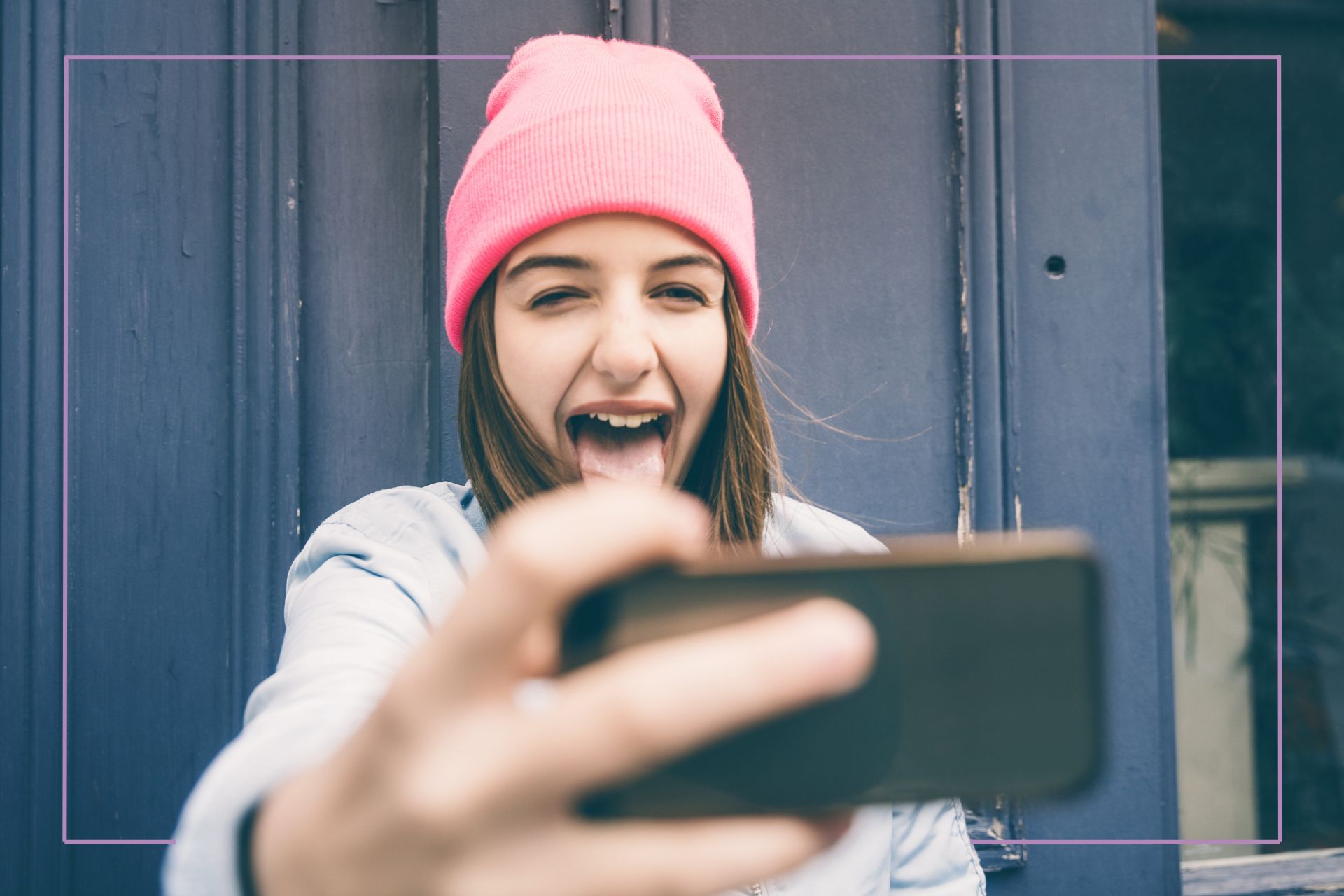
As younger teens and children increasingly use Instagram, you may be wondering, like many parents, what the effects could be. You're not alone. A growing number of parents are worried about the social media giant's impact on our kids' mental and emotional health.
Despite the fact that you must be 13 to use Instagram, almost one in four children as young as five are accessing content on the app, many of them doing it independently of their parents. Almost one in 10 even have their own profiles on Instagram, according to official Ofcom figures released in April 2024.
What our writer learned
I've remained unchanged on my smartphone decision, and if anything, learning about the risks of Instagram and other social media sites has made me more determined to put off handing over a phone to my tween son for as long as possible.
As many as eight in 10 children aged 8-17 use social media apps, including Instagram, and around a third are 'active users, ' which means they share, comment on and like other posts and post their own content. As a mum of an 11-year-old boy who desperately wants a smartphone, these figures frighten me. Reducing screen time is already such a big deal in our house so, an extra device won't help. I've pledged not to give him a smartphone until he's 14 with Kids For Now, a group dedicated to encouraging parents to connect and build local communities to delay smartphones and help keep kids off social media until they are at an age where they're mature enough to handle it. But as more of his friends get smartphones, I'm worried about him feeling as if he's falling behind.
"In my practice, I see a significant impact of social media on sleep and social skills," says child and adolescent psychologist Dr Ashley Harrow. "Teens are on their phones late into the night scrolling through Instagram and interacting with others by direct messages. This sleep loss can have direct effects on teens’ ability to learn and regulate emotions, as well as potentially exacerbating other behavioural health concerns."
I've spoken to a series of parents and experts about Instagram's effects on children and teenagers in an effort to find out exactly what the risks are and if there are any benefits to children using social media. From child mental health experts and psychologists to worried mums, here's what they had to say.
Is Instagram safe for kids?
The short answer is no. It's not safe for kids and certainly not safe for children under 13. That's why Instagram has an age limit of 13.
In January 2024, Meta announced it would take steps to hide harmful content from teenagers on Instagram and Facebook in direct response to growing pressure from regulators. This will make it more difficult for kids and teens to find content around sensitive subjects such as suicide, self-harm and eating disorders. They also restrict people over the age of 19 from sending messages to teens who don't follow them. You can find more about Instagram's teen privacy and safety settings here.
Parenting advice, hot topics, best buys and family finance tips delivered straight to your inbox.
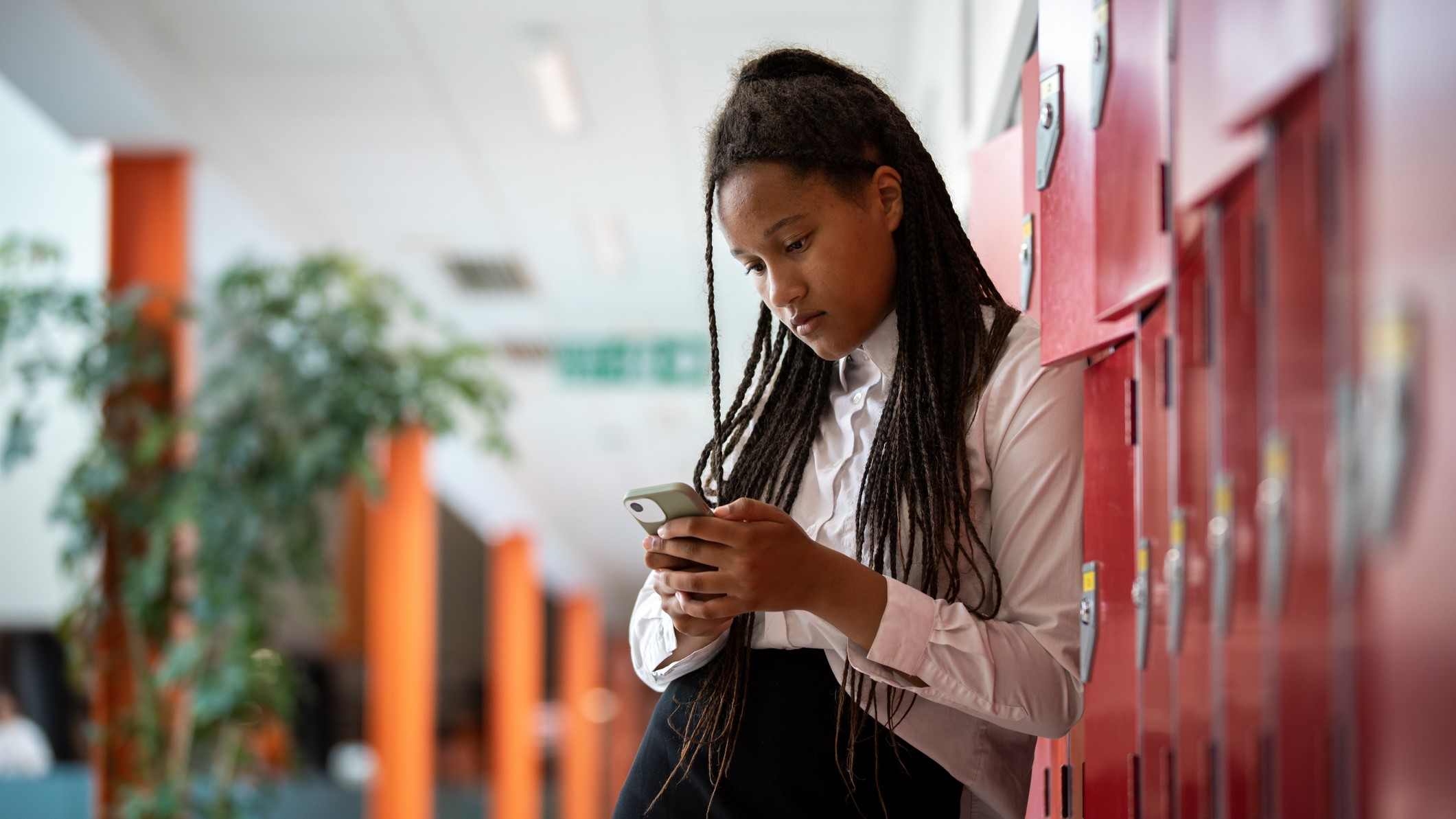
Yet despite these assurances, studies from around the world are still finding that children and teenagers are at risk of poor mental health, negative self-esteem and cyberbullying as a direct result of using Instagram and other social media platforms.
Parenting coach and best-selling author at Tough Topics Mom, Kimberly King, is unequivocal about Insta's lack of safety. "Social media is not safe for teens, especially kids under the age of 16. Instagram is ground zero for the destruction of mental health. It creates anxiety, encourages unhealthy habits, causes depression, and is highly addictive. This is a wake-up call to us all."
What's the impact of kids using Instagram?
Instagram has become a massive part of life for many children and teenagers. But lots of research shows us it can have a hugely damaging effect on them.
Dr Lisa Strohman is a clinician psychologist and founder of Digital Citizen Academy, an organisation that focuses on eliminating cyber-bullying, child luring, sextortion, and suicide through prevention and diversion. "The inherent risks of using social media platforms, especially those such as Instagram that promote highly edited photo sharing, are nothing but abundant," says Dr Strohman. "The risks to young adults and children using this app include social comparison and anxiety, body image concerns, cyberbullying, and dangerous behaviours caused by ‘the fear of missing out’."
Here are eight things that our experts want you to know about how Instagram is affecting your child - in both a positive and negative way.
- It affects their mental health, full stop
- They compare themselves negatively to others
- It impacts their confidence and sense of self-identity
- They're more at risk from cyberbullying
- They're exposed to things they shouldn't see, and predators
- It can be a powerful creative outlet
- They can 'find their tribe' online
- It can help them feel less lonely
1. It affects their mental health, full stop
Recent research, such as this systematic review of young people using Instagram shows that there is a 'strong relationship' between Insta and several mental health issues in young people, such as:
- feeling depressed
- feeling anxious
- being unhappy with their bodies
- having low self-esteem
- feeling lonely
In fact, this review found that Instagram had a disproportionately negative effect on teens' mental health in comparison to other social media platforms.
"The 'fear of missing out' phenomenon is quite an interesting one as, we know that what is shared on Instagram is only a bit of a person's life," says Dr Strohman. "The barrage of trips, parties, and life events being plastered online makes it seem that others are leading fabulous lives while you are home on your couch. Imagine how this impacts a young person who is not only vulnerable but does not even have a fully mature brain yet!"
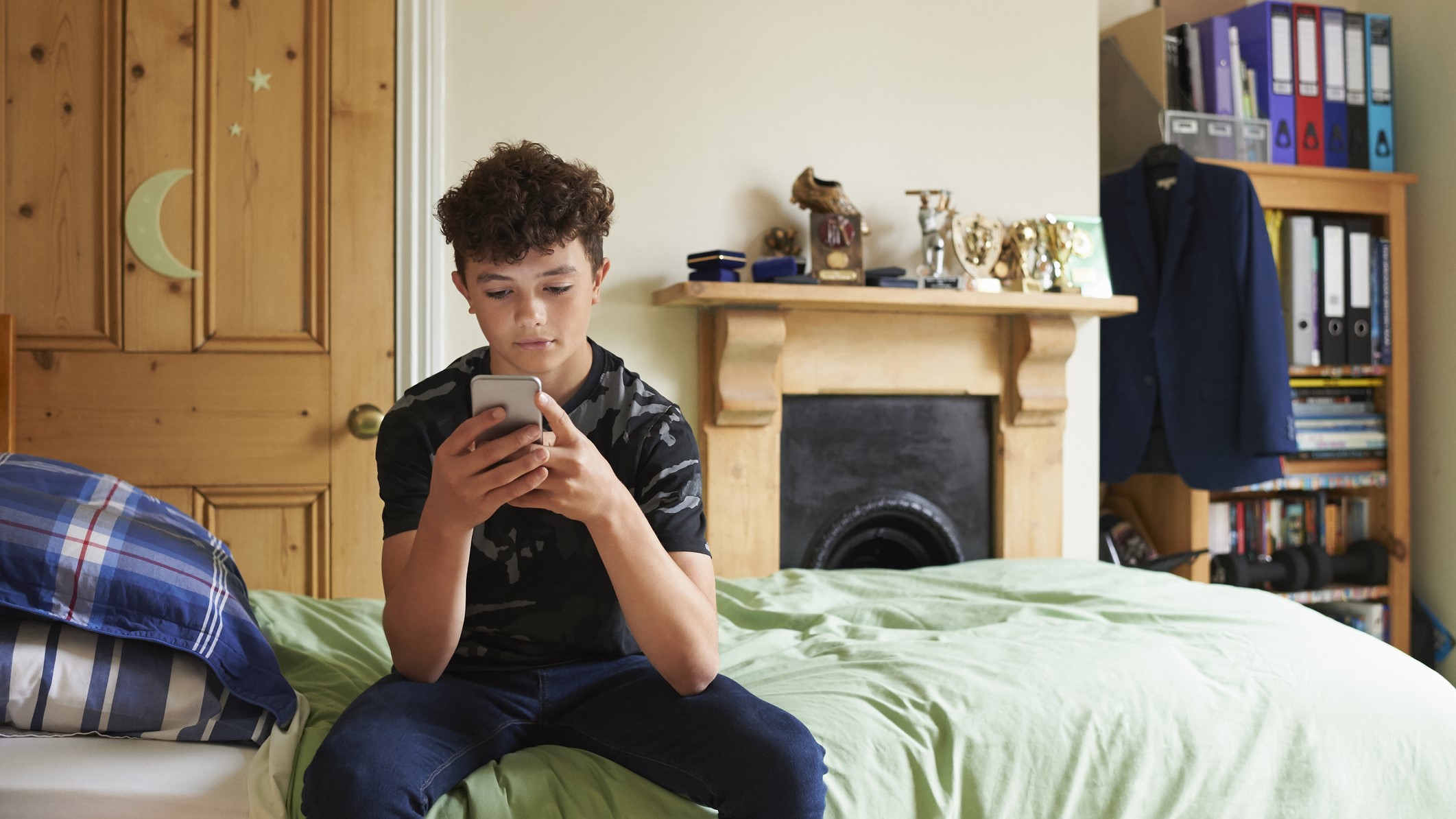
Clinical psychologist Dr Ashley Phillips agrees. "A child’s frontal lobe is not developed until their mid-twenties. The frontal lobe regulates executive functioning (focus, ordering, parsing information, prioritising, etc.). We become used to a certain level of emotional excitement with the app, so it shows us more and more extremist content to get us hooked. Since children lack a fully developed frontal lobe, this may shape their worldview, and they may adopt extreme views."
Dr Phillips also has concerns about how Instagram is affecting IRL friendships and relationships for kids. "Instagram also seems to be reducing kids' capacity to engage in real-life relationships in healthy ways. Social media users are more likely to feel worse about their friendships."
2. They compare themselves negatively to others
Teenagers often try to present a certain image of themselves on Instagram and frequently compare themselves to others. This can make them feel worse about themselves and increase their social anxiety.
The platform's idealised images and fake self-presentation, along with an algorithm that encourages frequent use, contribute to psychological distress and mental health disorders among young users. While you might compare yourself to your friends on Facebook, you're comparing yourself to potentially millions of strangers on Instagram.
"The prevalence of filtering and editing photos creates a false sense of reality and sets unrealistic beauty image expectations for young women and men alike," says Dr Strohman. "Young women may edit their photos to make their noses look more slim, while young men may add more muscle tone than actually exists on their body. This no doubt causes millions of teens to spiral about their appearance and cause anxiety about the unrealistic beauty standards not only set by celebrities, but now by their peers as well."
3. It impacts their confidence and sense of self-identity
We've all seen the Insta-posers on holiday taking and retaking pictures, editing and uploading for that 'perfect' image. Instagram's filters actively encourage smoothing out flaws, changing face shape, and enlarging eyes for an altogether unrealistic beauty standard no one can compete with. And it's affecting our children.
A 2021 survey of young people aged 13-21 found that those who used beauty filters were much more likely to want cosmetic surgery, and even alter their skin colour. One girl remarks, "There's no feeling worse than when I open my camera to take a picture, and the skin smoothing feature is pre-enabled, and I think I look great, only to notice that a filter is on, remove the filter and suddenly feel that by contrast, I am absolutely hideous."
While many studies don't point out the difference between how males and females are impacted, many do agree that girls are affected more, with a higher risk of developing anxiety and depression.
4. They're more at risk from cyberbullying
Research, such as this review into cyberbullying on social media platforms, shows that Instagram is one of the main platforms where cyberbullying happens. Cyberbullying on Insta might include posting embarrassing pictures or videos, leaving mean comments, writing aggressive captions, or creating fake accounts to harass someone.
Ofcom's 2024 report into social media usage found that three in 10 of all 8-17-year-olds have been cyberbullied, compared to two in 10 experiencing bullying face to face. And girls are more likely to be cyberbullied on social media than boys.
Mum Jessica tells us; "I haven't seen any research that suggests that kids having social media accounts is helpful for their mental or physical health, so we are holding off for now. My kids are currently 8 and 9, and I'd like to avoid smartphones as long as possible. The trickiest part is bucking the trend as their friends begin to get phones already. As a parent living in America, I also hate that in every conversation about this topic, a common fear of holding off on phones for children is them not being able to reach their parents during a school shooting. It is maddening that we have to incorporate that tragic reality."
5. They're exposed to things they shouldn't see, and predators
Ofcom's report has also cited the worrying rise in children being exposed to uncomfortable and unwanted types of contact on social media. Children aged 11-18 are most likely to receive this, with girls aged 16-18 the most exposed. This can include:
- pictures of naked or semi-naked people
- videos of naked or semi-naked people
- being asked to share images or videos of themselves, naked
- inappropriate messages
Heartbreakingly, children who live with at least one life-impacting or limiting condition, and children who identify as LGBTQ+, were much more likely to receive inappropriate messages, images and videos.
Jennifer Kelman, mental health expert and social worker, outlines just some of the dangers, including 'sextortion' on Instagram for kids. "Instagram is a place where predators go to find teens and ask for nudes or to meet up. The profiles used are often not genuine and teens may be talking to someone that they believe is someone else. If a nude is sent, the teen may find themselves a victim of sextortion, where the person threatens to release the photo if they don't pay them, tell their school or their parents."
These kids find themselves in complete despair and there is an alarming rise in death by suicide if the child feels they have nowhere to turn and are embarrassed. Drug deals may also occur through Instagram and teens looking for drugs like the 'anonymity' that social media provides."
Mum, Katie tells us; "My kids are 4 and 6 so they don't have phones yet but I am nervous when that inevitable day happens! I am very concerned about the ease of access to content that just isn't suitable for young impressionable minds. There's bound to be a fair amount of peer pressure too which worries me.
I hope that by the time they get phones and want social media on them (I won't allow Facebook, Instagram, etc., until they are at least 13), I will have educated them about how to stay safe on the internet, including not sharing any personal details, not sharing photos and not befriending someone they have never met in real life. I will also limit the amount of time they have access to these apps and maintain an open dialogue about what they have been viewing."
Are there any benefits for kids and teens who use Instagram?
After discovering all the downsides and megative impacts of using Instagram, it's important to be aware that there can be positive impacts too. In fact, Instagram can offer several benefits for kids and teenagers.
6. It can be a powerful creative outlet
Creative kids and teens can share their photos, artwork, and videos and get creative with filters and editing tools. This can be a brilliant avenue for self-expression and help them find more educational resources to help with homework and hobbies.
Ofcom's report highlighted that around 40% of kids love adding filters to make funny photos. Many kids also like Instagram Stories because the video disappears after 24 hours, allowing them to be creative and make mistakes without worrying it will be up there permanently.
7. They can 'find their tribe' online
Instagram can help kids explore their unique interests. Whether they're into photography, sports, music or travel, Instagram helps them find others who share their hobbies and passions.
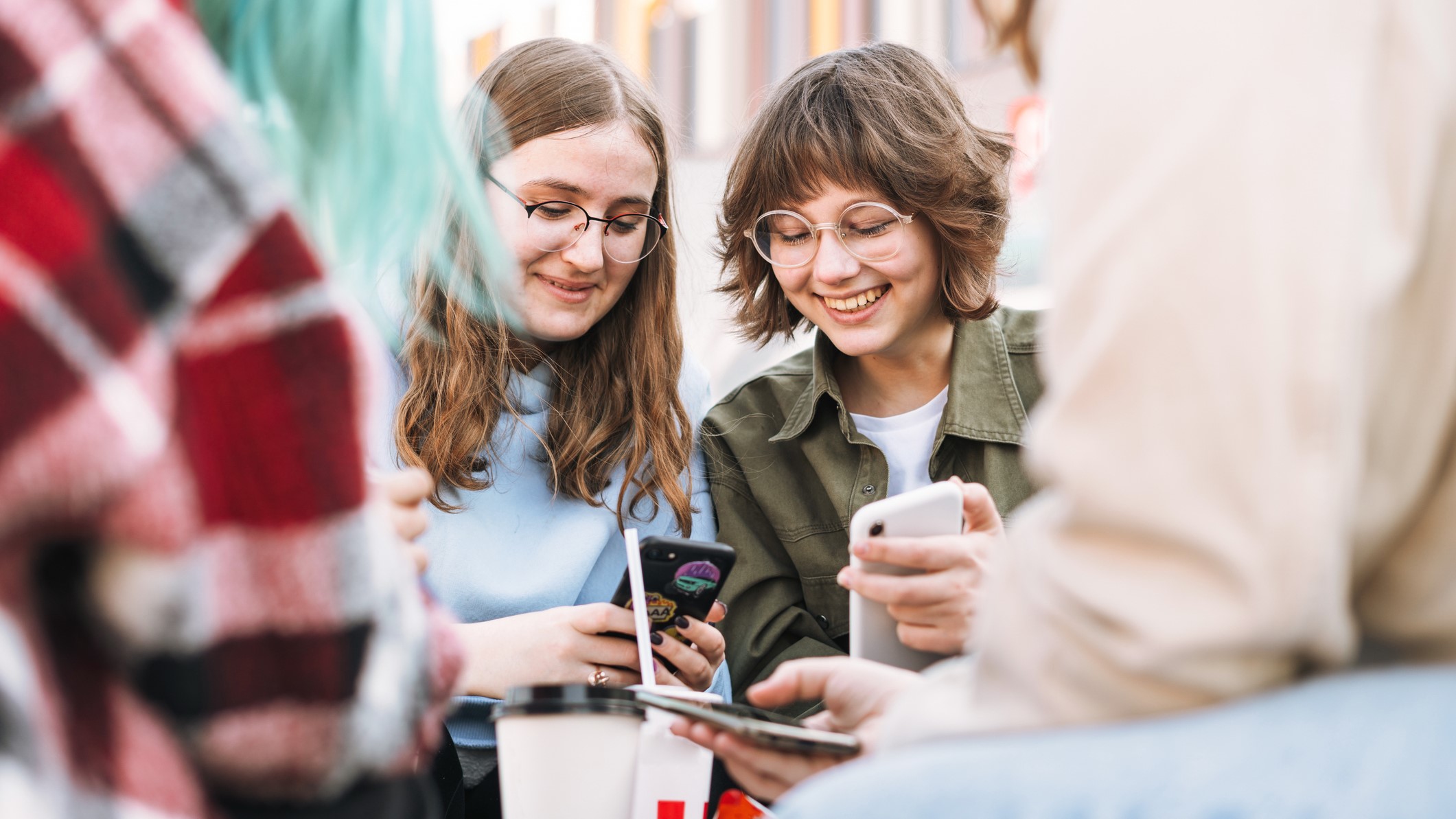
Not only can they find their tribe, they can also learn about different communities and experiences. "Instagram allows teens to connect with a broader global community, which has the potential benefit of broadening their perspectives and helping them understand diverse experiences," says Dr Ashley Harlow, child and adolescent psychologist.
"This is especially true for teens who might be members of more marginalised groups, such as sexual or racial minorities. The reach of Instagram can allow them to connect with broader online communities that might not be present in their immediate environments."
8. It can help them feel less lonely
It can also allow your kid to feel less lonely and communicate more easily with friends, especially in a world where kids don't go out to play. Ofcom found that more than 80% of kids aged 3 to 17 use social media for messaging, voice and video calls with peers and family. Two-thirds say this helps them feel closer to their friends.
"I have seen in my practice time and time again when a teen or kid is super emotionally dysregulated, and Instagram pictures, posts, or videos can provide a momentary distraction and, therefore, somewhat of a relief in the moment from those distressing moments," says Melissa Tract, a child and young adult therapist.
How can I make Instagram safer for my child?
Even if you don't want your child to have Instagram they will likely find a way, so if you decide to let them and want to keep it as safe as possible for them here are a few ways to do that;
Set profile to private
New Instagram accounts created by children under 16 will automatically be set to ‘private’ (from July 2021), but existing accounts will have been set to public by default. Encourage your child to keep their profile ‘private’ so that only people who they approve will be able to ‘follow’ them and see content they share, including 'stories' and ‘reels’. Anyone can send you a photo or video directly, though.
Empower your child to block and report
Restricting is a feature designed to protect children against bullying. If they restrict someone, that user won't be able to see when your child is online or if they've read their messages, other people won't see their comments on your child's posts, and your child won't be notified about comments or messages from them.
Think about agreeing on a daily use limit
Agree on a time limit together. Then tap the person icon in the bottom-right of the app home screen, before choosing the 3 lines in the top-right of the screen. Tap 'Your activity', then select 'Time spent', then 'Set daily time limit'.
Consider supervision
If your child struggles to keep to the agreed limit (because lets face it, it IS hard to do) then it might be worth considering setting up supervision. Instagram now allows parents to supervise their children from their own account. You can set this up by going to 'Settings' on your or your child's account, then selecting 'Supervision' > 'Create invitation'. You and your child must both consent to using supervision before you can access any of the features.
Restrict comments on posts
Open ‘Settings’, go to ‘Privacy’, and then 'Comments'/ 'Hidden words'. Here, you/your child can:
- Block specific people from interacting with their posts (under ‘Block comments from’)
- Automatically hide comments that might be offensive (under ‘Hide Comments')
- Hide other comments and messages they don't want to see by creating a custom list of words, phrases and emojis (under 'Manage list')
I think my teen is addicted to Instagram - what can I do?
Addiction to social media is a growing issue among children and teens; almost half of British teens say they feel addicted. If you're worried about how much time your child spends on Instagram, there are some simple and practical steps you can take, to start up a conversation about their usage and help them find other ways to connect and share.
- Have an open and honest conversation about social media: Show them how they can use the app in a positive way to help with homework, message friends and find content they like. Ask them whose feeds they like to visit and why, and ask if they've ever seen something that troubles them online. The more you encourage your child to talk to you about their usage, the more likely they'll come to you when something negative happens. Let them know you won't overreact.
- Suggest digital detox times: It's worth setting aside times in your child's life where a smartphone is unacceptable. For example, sitting at the table for dinner, after 9pm or before breakfast. Or go the whole haul and have a weekend away from all digital devices. If you do go down this route, plan something else to do instead, such as a family walk, or a day at the beach.
- Model responsible social media usage yourself: If you're constantly glued to your feeds you can't expect your teen not to do the same. Be mindful of how often you look at your phone, especially in family situations.
- Encourage other activities: Get your child up and out of the house doing something physical, whether it's walking, running, visiting a gym or just hanging out with friends. This will help them find a better balance between screen time and real life.
- Help them set their own limits: You can use Instagram's 'Your Activity' feature to help them set limits and log off when needed.
- Or set limits yourself: Use parental controls, such as Screen Time on iOS and the Family Link app on Android. These can help you block access and set time limits on certain apps.
Our panel of experts
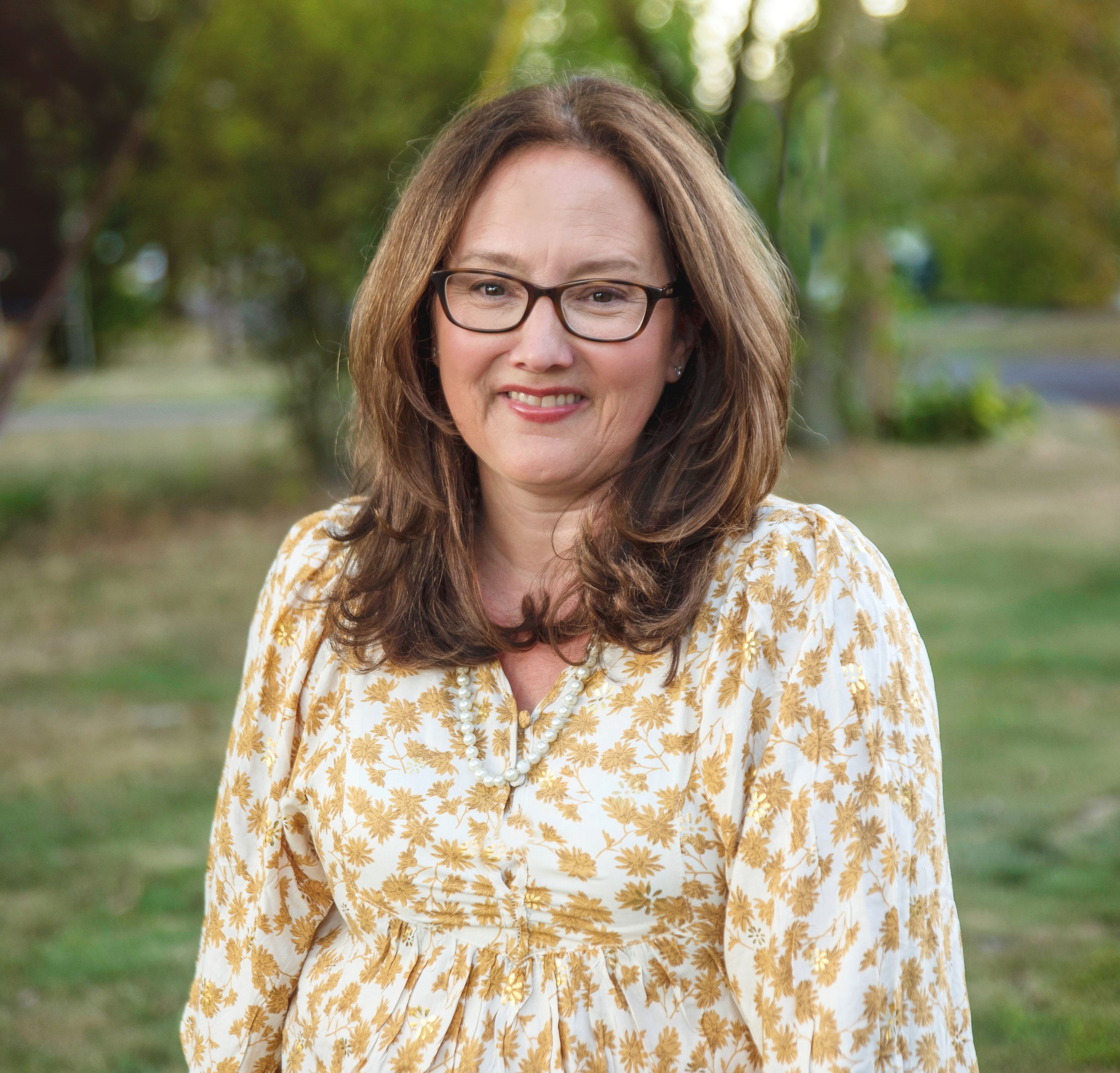
Kimberly King, "The Tough Topics Mom," is the author of the best-selling, most highly recommended book for children on prevention called I Said No! A kid-to-kid guide to keeping private parts private and Finding Your Fit! A kid-to-kid guide to feelings, fitness, and food and When Your Parents Divorce.

Dr Lisa Strohman is a clinical psychologist, attorney, and author who is recognised as a specialist on the intersection of psychology and technology (especially social media). She is the founder of Digital Citizen Academy - one of the first organisations to focus on eliminating issues such as cyberbullying, child luring, sextortion, and suicide through prevention and diversion programs, events, and resources.

Dr Ashley Phillips is a Clinical Psychologist from Valley Children's Healthcare in the United States. She was also recently named Dr. California America 2024.

Jennifer is a licensed clinical social worker and certified professional coach. She sees clients face-to-face and also online. She provides psychotherapy, life, relationship and business coaching. Jennifer is a social worker, author, entrepreneur, life coach and mum of 7 year old twins.

Dr Ashley Harlow, Ph.D., MBA, is a licensed child and adolescent psychologist at Children’s Nebraska in Omaha, Nebraska.

Melissa Tract is a child psychotherapist. She is an LCSW with over 8 years of experience. She has a B.A. in Psychology & Minor in Child and Adolescent Studies, along with her master’s in social work, from NYU, in addition to multiple trainings and certifications.
If you're still concerned about your child or teen, ask for professional help from your GP or find a private therapist who specialises in online addiction. Websites such as UK Addiction Treatment Centres and UK-Rehab can point you in the right direction with more advice and information on internet addiction. For younger children the podcast But Why has an episode on why social media is so addictive.
Get more advice on setting device limits and improving online safety for your child, from 15 'life-saving' questions to ask your child if they’re online gaming to 4 tips to stop kids from doom-scrolling. Plus, what you need to know about cyberbullying, including the sites and apps all parents need to be aware of.
Joanne Lewsley is mum to a tween, and freelance copywriter and editor who creates parenting, health and lifestyle content for evidence-based websites, including BabyCentre, Live Science, Medical News Today and more.

